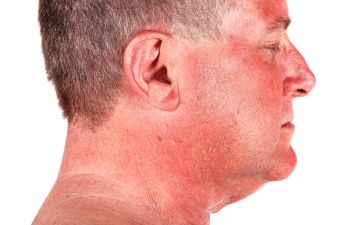
Contact dermatitis and eczema are both skin conditions that appear similar in several ways. Affected areas break out in an itchy rash. Scratching and lack of treatment can lead to redness and swelling. The dermis may also become swollen and inflamed, and you could experience the formation of bumps or blisters. The afflicted region may take on a scaly appearance, and the skin can crack and ooze.
These symptoms are painful and irritating, and can be especially distressing for babies and young children. If the rash has appeared on a visible area, such as the hands, arms or neck, this could make the patient self-conscious and impact your social interactions. Sometimes these conditions can affect fine motor skills, such as if the rash appears particularly aggressive on the hands. This could impact employability or the ability to comfortably complete normal daily tasks.
Identifying Eczema
Eczema is a very common skin condition that most often develops before a child’s first birthday. However, adults can suddenly develop eczema at any stage. It is known to be related to other conditions like asthma, hay fever and food allergies. Eczema appears as a rash, usually beginning in skin creases like the knees or the elbows, but can occur anywhere on the body. Eczema is not contagious, but it is hereditary.
Defining Contact Dermatitis
Contact dermatitis is different from eczema in that it is caused by direct or indirect contact with an irritant within your environment. There are two main types of contact dermatitis. Irritant contact dermatitis occurs from repeated and prolonged contact with substances like detergents, solvents and hot water. Particular professions can be more susceptible to this condition, such as hairdressers, nurses, cooks and cleaners. However, anyone can develop contact dermatitis from frequent hand washing or contact with irritants.
The other variety of contact dermatitis is allergic contact dermatitis. This is a reaction to a specific chemical or substance that has come into contact with the skin. The most common allergens are rubber, nickel and hair dye.
For best results in treating these skin conditions, it is advisable to seek the services of a dermatologist. Contact Medical Dermatology Specialists Specialists today for an effective solution to your skin problems.
Medical Dermatology Specialists,
5730 Glenridge Dr, Suite T-100
Atlanta, GA 30328
(404) 939-9220
Monday – Thursday 7:30 AM – 5:00 PM
Posted on behalf of
5730 Glenridge Drive, Suite T-100
Atlanta, GA 30328
Phone: Call (404) 939-9220
FAX: (470) 312-2157
Email: jstalls@atlmedderm.com


